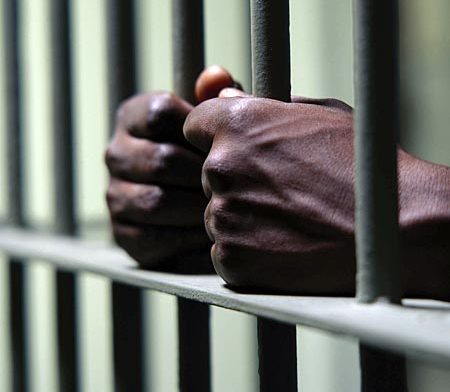News
We don’t torture inmates in our prison custody – Nigerian Correctional Service clarifies

The Nigerian Correctional Service (NCoS) has made contrary insinuations in certain quarters; the service does not employ the use of torture on inmates, saying the act is against the rules of the agency.
Assistant Comptroller General of Prisons in charge of operations, Barr. Emmanuel Nwakeze, made the clarification at a capacity building for Members of the National Committee Against Torture (NCAT) organised by Avocats Sans Frontieres France under the Promoting the United Nations Convention Against Torture (ProCAT) Project with support from the Australian High Commission in Nigeria and the United Nations.
He said: “In the first place, it is with compliance with giving correctional service a human rights disposition that made our people change our name from prisons which signifies torture, to correction, which removes torture and talks of rehabilitation and correction.
“We are in the forefront for promoting human rights. It is already in our law and the part of the law says that no inmate should be tortured. In fact, using inmates to work for our staff is not allowed under the new dispensation of Nigeria correctional service act of 2019. Therefore, you cannot see torture anywhere in our custody, just that sometimes the only problem we may have is congestion which we are working assiduously to correct.”
Noting that there are mechanisms for inmates to complain when such cases arise, he noted that in every correctional service, there is a welfare staff who ensure that inmates have due welfare treatment and any inhuman or degrading treatment could be reported.
He said the service was retraining its staff to ensure that they act within the confines of the law, adding that “we don’t have cases of torture we are handling currently.”
Country Director of ASF France, Angela Uwandu Uzoma-Iwuchukwu, said the training was to support members of NCAT to ensure that they are able to effectively deliver on their mandates to curb torture in Nigeria.
She said: “We also know that here in Nigeria, we have our national legislation against torture which is the anti-torture act 2017. Part of the mandate of the committee is to ensure implementation of this legislation and we hope that we will be leading the committee through various aspects and strategies to ensure that on one hand we bring about accountability for perpetrators of torture in Nigeria and also on the other hand, to ensure that there is access to justice for victims of torture. We know that torture is commonly used by law enforcement agencies but the strong message that we are engaging with the various security agencies who themselves also have nominations within the committee to put the message out that it’s not business as usual.”
Charge D’ Affaires of the Australian High Commissioner to Nigeria, Leann Johnston, said though Nigeria Declaration has been codified through the Anti-Torture Act 2017 but said the act is not 100 per cent abided by today.
He said: “Too frequently we still hear stories from partners, NGOs, civil society, lawyers, the media, and victims themselves of instances where torture has been committed by those charged with protecting the rights of individuals under the Act. For example, there are many sitting in correctional centres
today who are only there because of a confession induced through torture.
“Again, it is in this vein that we are pleased to hear members of the new Government, including His Excellency President Tinubu, not only admit that there have been mistakes in the past but commit themselves to Protecting the rights of people moving forward. I welcome the commitments of the new Government to work towards changing the culture of agencies covered by the Act away from one that permitted actions such as torture, towards one where it is not tolerated, as the Act intends.”






